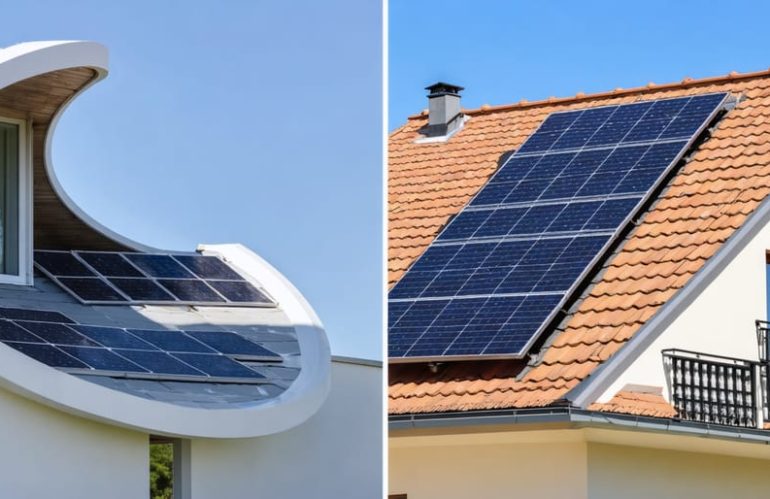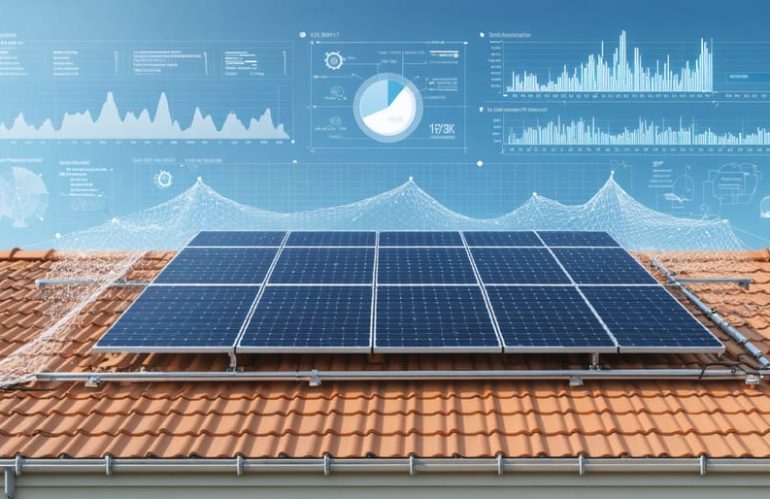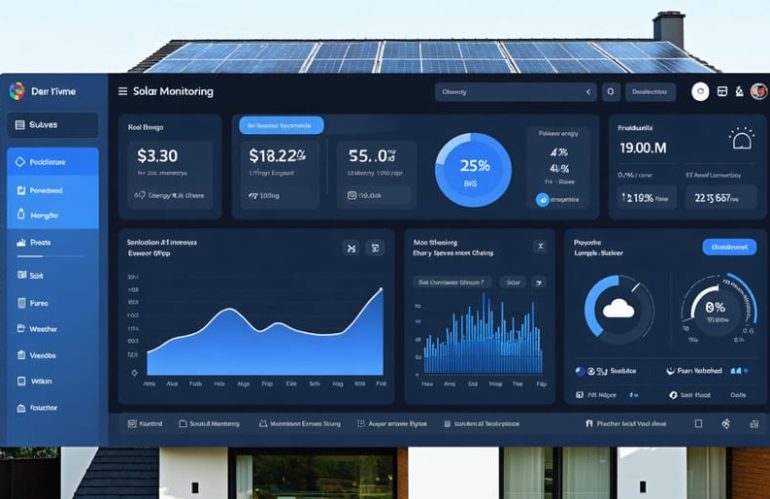The choice between flexible and rigid solar panels represents a crucial decision that directly impacts your home’s energy future. With modern solar panel capabilities advancing rapidly, both options offer distinct advantages for different situations. Flexible panels excel in their adaptability, weighing significantly less and conforming to curved surfaces, making them ideal for boats, RVs, and uniquely-shaped roofs. Traditional rigid panels, while less versatile in …
Author: richard
Smart Solar Storage Solutions That Actually Save You Money
Solar energy stands at the forefront of our clean energy revolution, with groundbreaking innovations transforming how we harness and store the sun’s power. Recent technological breakthroughs have dramatically improved solar panel efficiency while reducing costs by up to 70% over the past decade. From transparent solar cells that turn ordinary windows into power generators to advanced energy storage solutions that ensure 24/7 power availability, these innovations are making solar energy more accessible and practical than ever before.
The game-changing developments in solar technology aren’t just reshaping our energy …
Smart Solar: How Predictive Tech Keeps Your Panels at Peak Performance
Imagine never having to worry about unexpected equipment failures or costly emergency repairs again. Modern predictive maintenance technologies are revolutionizing how we care for our homes and essential systems, particularly solar panel installations. By combining artificial intelligence, sensor networks, and real-time monitoring, these smart solutions can detect potential issues before they become major problems.
Think of predictive maintenance as your home’s personal health monitoring system. Just as smart watches track vital signs to prevent health issues, these technologies continuously analyze your equipment’s …
How CESER Safeguards Your Home’s Solar Energy Storage System
In an era where energy security intersects with digital threats, the Office of Cybersecurity, Energy Security, and Emergency Response (CESER) stands as America’s frontline defense for our critical energy infrastructure. As solar installations and smart grid technologies become increasingly common in homes across the nation, CESER’s role in helping protect your solar investment has never been more vital.
This Department of Energy division works tirelessly to safeguard the nation’s …
How KWh Analytics Makes Your Solar Investment Safer (and More Profitable)
Transform your residential solar investment from a leap of faith into a calculated decision with KWh Analytics’ cutting-edge risk assessment tools. By analyzing real-world performance data from thousands of solar installations, this innovative platform delivers precise energy production forecasts and identifies potential risks before they impact your bottom line. Solar investors now access the same sophisticated risk management techniques used in traditional financial …
How Solar Monitoring Makes Your Home’s Energy System Smarter (and Saves You Money)
Transform your residential solar installation into a smart, efficient powerhouse with advanced monitoring systems that track every watt of energy your panels produce. Real-time monitoring technology has revolutionized how homeowners interact with their solar investments, providing instant insights into system performance, energy production, and potential savings. By combining sophisticated sensors, user-friendly apps, and intelligent analytics, these monitoring solutions empower …
Solar Contractor Insurance: Protecting Your Business While Building a Greener Future
Solar contractors face unique risks that demand specialized insurance protection beyond standard business coverage. From potential damage during panel installations to long-term performance guarantees, the solar industry presents distinct challenges that can significantly impact your bottom line. Professional solar contractors insurance safeguards your business against liability claims, equipment damage, and worker injuries while meeting state licensing requirements and client contract demands.
Securing comprehensive coverage becomes increasingly critical as the solar industry expands and installation projects grow more complex. A …
How Geothermal Energy Could Free Your Home From Rising Energy Costs
Geothermal energy stands as America’s untapped clean energy giant, quietly powering over 3.7 million homes across the United States with Earth’s natural heat. As fossil fuel costs continue to rise and climate concerns intensify, this renewable powerhouse offers homeowners a reliable path to energy independence while slashing utility bills by up to 65%. The United States, blessed with the world’s largest geothermal resources, currently leads global geothermal electricity production with over 3,700 megawatts of installed capacity – enough to power several major cities.
From the bubbling geysers of Yellowstone …
Smart Solar Monitoring: How 24/7 Support Protects Your Energy Investment
Proactive solar support transforms your investment from a passive energy solution into a powerhouse of long-term savings and reliability. Modern monitoring systems continuously track your solar array’s performance, alerting you to potential issues before they impact your energy production. Think of it as a health monitoring system for your solar investment – catching small problems before they become costly repairs.
Gone are the days of reactive maintenance and unexpected system failures. Today’s smart monitoring tools, combined with scheduled professional inspections, ensure your solar panels operate at peak …
3-Phase Solar Inverters: The Smart Upgrade That Maximizes Your Home’s Solar Power
Transform your home’s solar energy system with a 3-phase solar inverter, the powerhouse technology that’s revolutionizing how we harness the sun’s power. Unlike traditional single-phase inverters, these advanced systems maximize energy conversion efficiency by distributing power evenly across three separate circuits, making them ideal for larger homes and commercial properties. As electricity costs continue to rise, 3-phase inverters offer a smart solution by delivering up to 30% more power output while providing enhanced grid stability and reliability. Whether you’re upgrading an existing solar setup or planning a …










